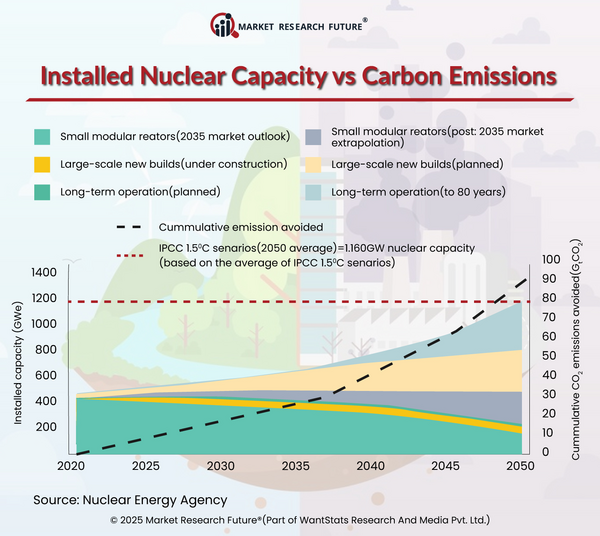Big Tech Backs Nuclear Expansion: Pledges to Triple Global Capacity by 2050
Leading technology giants Amazon, Google, and Meta have teamed up with other big energy users in a historic action at the CERAWeek 2025 energy conference in Houston to promote an ambitious initiative: doubling world nuclear power capacity by 2025. This extraordinary cross-industry commitment emphasizes how important nuclear energy is in improving resilience, energy security, and the supply of always clean electricity.
Among the original pledge signatories are Amazon, Google, Meta, Dow, Occidental, Allseas, OSGE, and IHI. Their combined support shows an increasing understanding of nuclear power's ability to satisfy rising world energy consumption. The effort also asks other energy consumers to help triple nuclear energy capacity by 2025.
This dedication is consistent with past sponsorships of 140 nuclear industry businesses, 31 nations, 140 central global banks and financial institutions, and 140 nuclear industry corporations promoting a significant increase in nuclear energy to combat climate change and guarantee energy security.
The rising energy needs connected with developments in artificial intelligence (AI) and data center operations push the backing of the tech titans for nuclear energy. Reliable, ongoing power sources become even more important as artificial intelligence systems develop. A workable answer is nuclear energy, which supplies constant, plentiful electricity needed for continuously running data centers and other energy-intensive systems.
At present, 439 nuclear reactors account for around 9 percent of global energy consumption. Consistent work by developers, utilities, governments, and customers is essential to doubling nuclear capacity by 2025. Apart from satisfying rising energy consumption, this development is essential for mitigating climate change by lowering dependence on fossil fuels.
Still, the road to increasing nuclear energy is not easy. Significant challenges include soaring prices, legal barriers, and safety issues with next-generation nuclear technology, such as small modular reactors (SMRs). Notwithstanding these obstacles, the combined support of big businesses shows an ardent desire for creativity, investment, and teamwork to fully use nuclear energy.
The vow also emphasizes nuclear energy's adaptability beyond conventional power generation. Clean energy from nuclear power may assist many industrial operations, including those in the technology sector, oil and gas industry, and the supply of industrial process heat and increase electrification support. This adaptability helps nuclear energy become a viable and scalable clean energy source that satisfies many industrial demands.
Support from powerful businesses like Amazon, Google, and Meta fuels legislative, financial, and legal improvements as the world shifts toward renewable energy sources. Their support guarantees the supply of plentiful, intense, clean energy needed to drive development and innovation across many sectors and the whole economy, accelerating the spread of nuclear power.
The attempt to increase world nuclear capacity by 2025 is a major step toward a sustainable energy future. It shows a shared awareness of the need for consistent, clean, and strong energy sources to satisfy the needs of a fast-changing technology scene and a rising world population. The vision of a nuclear-powered future becomes ever more realistic as more businesses and nations commit to this promise.






